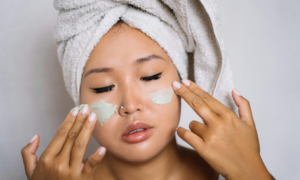In the world of beauty and fashion, Retinol-A has long been hailed as a miracle ingredient for its anti-aging and acne-fighting properties. However, beneath its glowing reputation lies a disturbing history that demands our attention, especially through the lens of Diversity, Equity and Inclusion.
Retinol-A, also known as Tretinoin, was developed through a series of unethical medical experiments conducted on incarcerated individuals in Philadelphia’s Holmesburg Prison between 1951 and 1974. Led by dermatologist Dr. Albert Kligman, these experiments subjected hundreds of vulnerable people, predominantly Black men, to painful and invasive procedures without their informed consent. The goal of these experiments was to test various pharmaceuticals, cosmetics and even chemical warfare agents. The test subjects endured “patch tests,” mysterious injections and biopsies often resulting in long-lasting scars and skin discolourations. The financial incentives offered to the test subjects were meagre and the subjects were seldom informed about the potential risks and side effects of the substances being tested on them.

The unethical practices surrounding the development of Retinol-A have had a lasting impact on marginalised communities. These communities have historically been subjected to exploitation and discrimination and the legacy of these experiments continues to affect their trust in the medical and beauty industries. By acknowledging and addressing these injustices we can work towards rebuilding this trust and ensuring that all individuals are treated with dignity and respect.
The role of ethical journalism, such as this Teen Vogue article is crucial in uncovering and disseminating these dark truths. Journalists who prioritise inclusion in their reporting help shine a light on the injustices that have shaped industries like beauty and fashion. Their work is essential in holding these industries accountable and promoting transparency and ethical practices.

Education is a key component in promoting DEI in the beauty and fashion sectors and, to honour the victims of these experiments and ensure that history does not repeat itself, brands must provide consumers with accurate information in order that informed choices can be made, from synthetic hair and hair relaxers to toxic ingredients in beauty products, we must demand higher standards and we all need to advocate for ethical beauty practices. This includes supporting brands that prioritise transparency, informed consent and the well-being of their consumers. Additionally, we must amplify the voices of marginalised communities and ensure that their stories are heard and respected. Consumers have the power to drive change by supporting ethical beauty brands by looking for companies that are transparent about their ingredients, sourcing and production processes. Brands that invest in sustainable and fair-trade practices contribute to a more equitable industry and by choosing to support these brands we can make a positive impact on the dignity, rights and lives of workers and communities around the world.

The history of Retinol-A serves as a stark reminder of the importance of DEI in the beauty and fashion industry and by confronting these uncomfortable truths we can pave the way for a more just and inclusive future.

